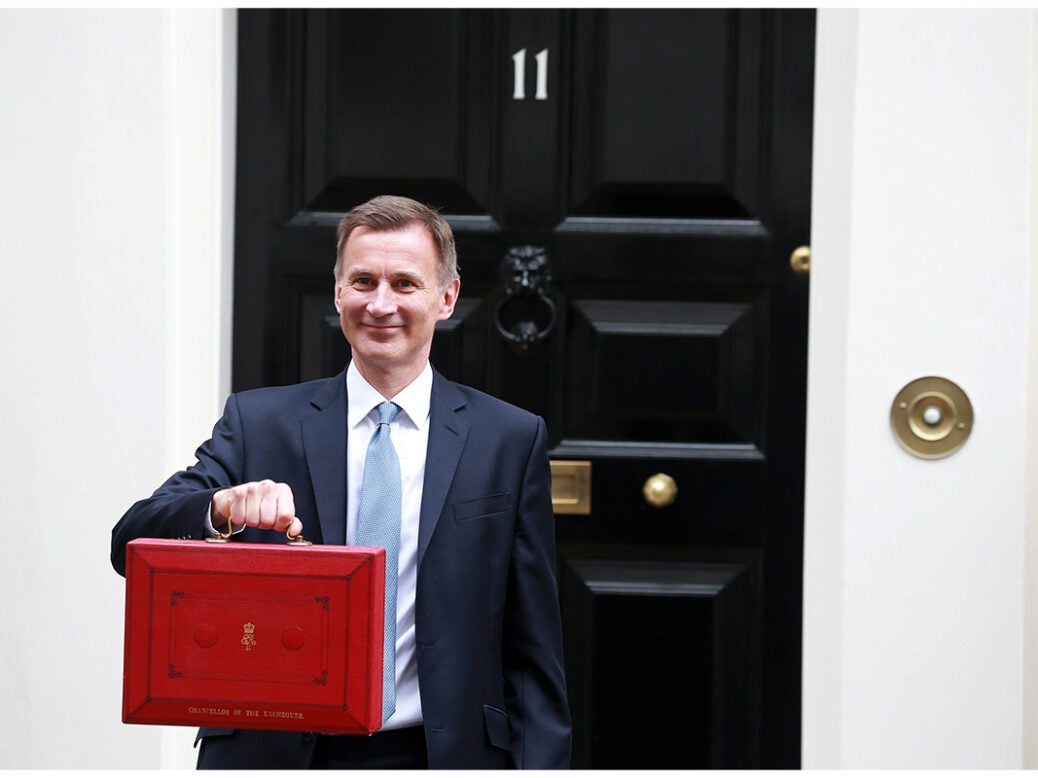
Chancellor Jeremy Hunt is reportedly considering scrapping the non-dom regime ahead of the spring budget.
Conservatives have previously defended the tax break, arguing that it is a driving force in attracting internationally mobile UHNWs to the UK. The defence of the non-dom status has also been a key difference between Rishi Sunak and Sir Keir Starmer, who has vowed to review the policy if he wins the upcoming general election.
[See also: Non-doms and the general election: when should HNWs act?]
However, the power balance looks poised to change. Hunt is reportedly looking at axing the non-dom regime as he digs around for new sources of revenue in order to fund cuts to national insurance in the 6 March budget.
Abolishing the current regime could bring an extra £3.6 billion to the Treasury, according to the Wealth Tax Commission. The news was first reported by the Financial Times.
But tax advisers and lawyers from the Spear’s network have warned that Hunt must proceed with caution or risk ‘damaging the economy’ and the UK’s global reputation.
‘The consequences of getting it wrong will be damaging to both the economy and our position as a leading global financial centre,’ warns Robert Brodrick, a Spear’s Top Flight adviser and chairman of Payne Hicks Beach. ‘We predict that a lot of non-doms currently based in the UK will leave and move to jurisdictions like Italy where they have introduced an extremely attractive non-dom regime.’
The problem facing Labour

Non-doms currently benefit from the ‘remittance basis’, which means no tax is payable on foreign income as long as it is not brought into the UK. (The arrangement can include an annual charge, depending on how long a non-dom has been in the UK, of £30,000 or £60,000.)
HMRC’s rules have already become less generous for non-doms in the past 15 years. Changes in 2017 meant those living in the UK for 15 of the past 20 years are now treated as ‘deemed domiciled’, at which point they have to pay UK tax on their global income, as other UK-domiciled taxpayers do.
Unsurprisingly, the numbers of non-doms have begun to fall. In 2008, 137,000 UK taxpayers were using the non-dom rules. The figure fell to less than 80,000 in 2018. Despite this, the tax take from non-doms and deemed domiciles hit a record level of £12.4 billion in 2022.
[See also: HNWs more likely to vote Labour than Conservative, poll finds]
Labour initially pledged to scrap the non-dom regime entirely but has since revised its position. Instead, it is understood the party plans to offer non-doms a four-year grace period before they must start paying full UK tax. This would raise £2 billion a year, according to calculations from LSE.
An announcement by Hunt to scrap or pull back on non-dom tax breaks would cause problems for shadow chancellor Rachel Reeves, who has already allocated money that would be gained by scaling back on the regime to key Labour priorities including increasing NHS funding.

Former shadow chancellor Ed Balls was among those who had spoken of the difficult position in which Labour would find itself if Hunt moved on non-doms. ‘We’ve been saying again and again they should do it. All Labour’s promises around more operations, scanners or dentistry or the stuff they’re saying around schools and breakfast clubs all relies on getting that money,’ he said during a recent conversation on his Political Currency podcast. ‘If Jeremy Hunt were to take that money, it would make it much much harder [for Labour]. They would have to find some alternative source of revenue to pay for these promises.’
Non-dom regime: scrap at your peril
Tax advisers have warned Spear’s that the UK risks a non-dom exodus unless changes to the policy are handled sensitively. Some have already been working with UHNW clients on ‘fire escape plans’ that can be enacted if Labour comes to power. Now these will need to be considered in the eventuality of a Tory win, too.
‘With the distinct possibility that the Remittance basis will disappear even before the next general election, the already steady stream of Non Dom departure will become a stampede,’ predicts tax adviser David Lesperance. ‘This is especially true at the UHNW end of the Non Dom scale as they will have the biggest income and IHT hit and they have the easiest ability to make and maintain their wealth from anywhere on earth.’
Dominic Lawrance, a Spear’s Top Recommended tax lawyer and partner at Charles Russell Speechlys, noted Hunt risks shrinking the UK’s private wealth sector. ‘The proposals have been presented as revenue-raisers, but many tax advisers are very sceptical about this, due to anticipated behavioural impacts,’ he explains.
‘Many would expect the changes to be negative for the exchequer, at least in the long run, because they will make the UK unattractive compared to certain other countries, particularly Italy, which are already offering a much simpler and more benign tax regime for wealthy “incomers”. The concern is that the UK’s loss will be Italy’s gain”.’
[See also: UHNWs brace for tax reform in election year]
Brodrick speculates the most likely outcome is that Hunt will scale back, rather than scrap, the non-dom regime. ‘We think the most likely scenario is that people who come to the UK from abroad will be given a short-term exemption from tax on their overseas income and gains, and will then be taxed on a worldwide basis once they have been resident in the UK for a certain number of years,’ he tells Spear’s. ‘It is unclear what will happen to anyone who is already living in the UK as a non-dom.
‘It’s going to be difficult for the Chancellor to balance the perceived unfairness of a system that allows people to live in the UK without paying tax on a worldwide basis, with encouraging ultra-high net worth individuals to base themselves and their businesses in the UK where they will pay a significant amount of tax.
Richard Bull, partner in private Clients at Crowe UK, noted there is an alternative route Hunt could pursue. ‘Another area the government could review is the Capital Gains Tax rules for non-doms who become UK tax resident,’ he suggests. ‘If you move to the UK and then sell investments that you’ve held for a long time – all of that gain is potentially taxable in the UK. While the tax can be deferred, if the funds are remitted the tax will bite. A lot of countries in the world operate a rebasing system, meaning non-doms would only ever have to pay UK tax on gains that accrued living here.
‘The current regime is complex and a new overhauled regime that is simpler to operate might be welcomed by future visiting non-doms and could encourage more investment into the UK – albeit perhaps for a shorter duration. Whatever happens, this is not the last we’ve heard about non-doms this election year.’






